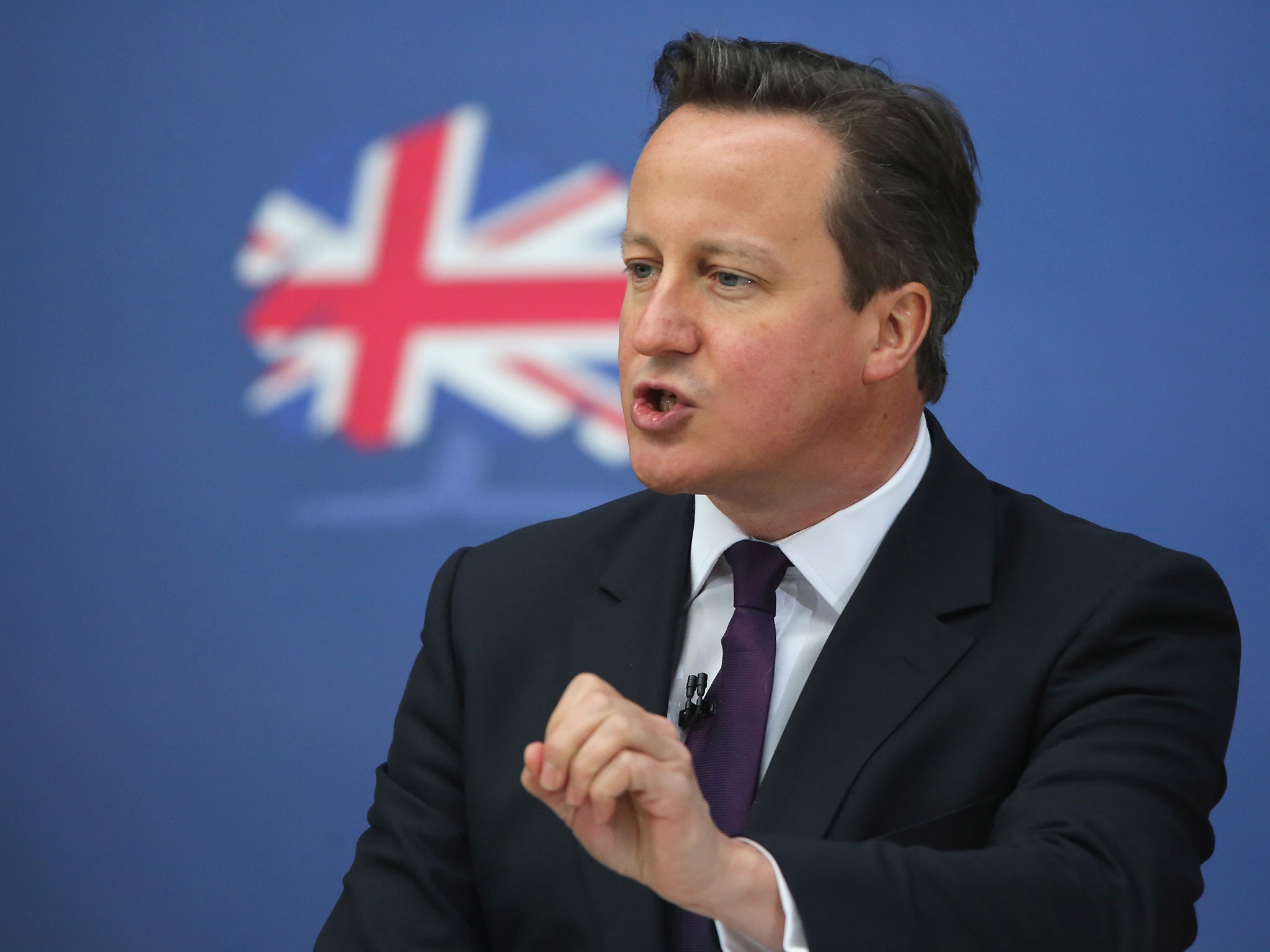David Cameron's tougher visa rules for foreign workers could backfire, say immigration advisors
Migration Advisory Committee (MAC) urges caution on the PM's plans

Moves by David Cameron to toughen visa rules for foreign workers could backfire by forcing British companies to expand overseas and hitting the quality of university research, the government’s immigration advisers have warned.
They also concluded there was little evidence of skilled recruits from overseas undercutting the pay levels of British workers.
The Migration Advisory Committee (MAC) urged caution on the Government over its wish to reduce the number of migrants allowed to work in jobs where employers encounter recruitment problems.
Mr Cameron instructed the committee to examine the impact of raising the minimum salary requirement for skilled worker visas for non-Europeans – known as Tier 2 visas – on business, industry and the public sector.
The move was among a range of policy proposals announced by the Prime Minister in May for reducing the demand for migrant labour. He has said it was “frankly too easy” for some businesses to hire workers from overseas.
But in a report the MAC said it had been warned by firms that increasing the pay thresholds could “prevent expansion of business and thus possibly cause certain business areas to grow elsewhere in the world at the expense of the UK”.
Fears were also raised about the move by the Department of Business Innovation and Skills, which has frequently clashed with the Home Office over immigration policy.
It told the MAC that businesses outside London trying to recruit talented young staff could be particularly affected, with the Scottish Government and Scottish universities strongly opposing the plan.
Scotland was singled out by several groups which gave evidence to the committee as an area which would be “detrimentally affected”.
The MAC warned that increasing the salary thresholds would hit the health and education sectors which rely heavily on skilled foreign recruits. Universities said it would hamper their chances of recruiting the “best global talent” and of competing for foreign-based research grants.
Sir David Metcalf, the committee’s chairman, said: “We urge the government to be cautious in making any significant changes to the salary thresholds because they should not be considered in isolation.”
Under the current system, migrant workers must be employed in a job with a minimum annual salary of £20,800 and there are higher thresholds for specific jobs considered to suffer skill shortages.
Sir David said that raising the threshold for those jobs could have a “really quite substantial impact” by locking 16,000 people out of the jobs market, with nurses and secondary teachers among the most affected professions.
There is a cap on the number of general Tier 2 visas which can be issued each year. It was met for the first time in June and in July, and is expected to be hit again in August. Sir David said: “Obviously as a consequence of that, we are therefore excluding some people who firms would like to bring in.”
A Home Office spokesman said: “We thank the Migration Advisory Committee for their report. We will consider its findings and respond in due course.”
Join our commenting forum
Join thought-provoking conversations, follow other Independent readers and see their replies
Comments
Bookmark popover
Removed from bookmarks